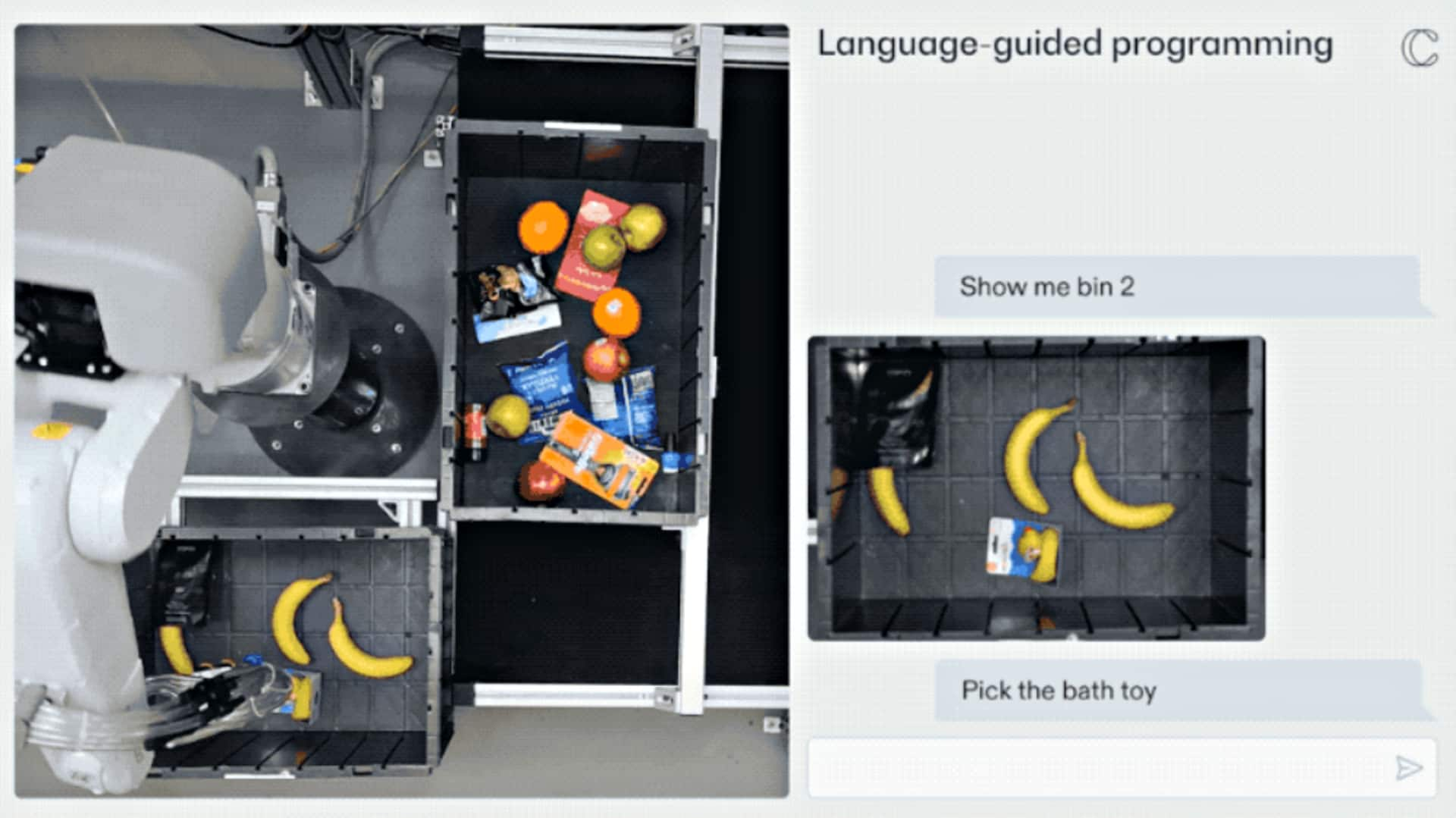
Covariant's new AI model for robots learns via text, videos
What's the story
Covariant, an artificial intelligence spinout from UC Berkeley, has announced the launch of RFM-1 (Robotics Foundation Model 1). Described by CEO Peter Chen as a "large language model for robot language," RFM-1 is built on data collected from Covariant's Brain AI platform. The RFM-1 aims to power future robots in various sectors including manufacturing, food processing, recycling, agriculture, and service industry.
Significance
A leap toward general-purpose robotic systems
The launch of RFM-1 comes at a time when the robotics industry is exploring the potential of general-purpose systems. Covariant's software, primarily used in industrial robotic arms for warehouse tasks, promises hardware agnosticism. Chen acknowledges the importance of coupling intelligence and hardware advancements to fuel an explosion in robot applications. However, he also notes that many such developments are not yet fully matured, especially on the hardware side.
Convenience
It would bridge gap between robots and humans
Per its press material, Covariant says RFM-1 is designed to give robots a human-like ability to reason, marking a significant shift from traditional robotic systems. Unlike single-purpose robots that thrive in structured environments, RFM-1 enables robots to adapt to changes and execute different tasks. This eliminates the need for constant reprogramming, saving resources and time. Currently, RFM-1 presents as a text field where users can input commands, which the system uses to identify objects and determine best course of action.
Mechanism
How does RFM-1 work?
RFM-1 allows users to interact with robots in a more natural way. Users can input text commands like "pick up the apple," and the system uses its training data to identify the object that matches the description. It then generates video outcomes or simulations to determine the best course of action, similar to how human brains process potential outcomes before executing an action. This innovative approach promises a new era of interactive robotic systems.
Facts
Covariant's expectations for RFM-1
Covariant, co-founded by Chen and Pieter Abbeel, has a strong pedigree in AI research. Both founders have connections to OpenAI, with Abbeel being an early employee of the firm. Chen expects that the new RFM-1 platform will be compatible with a majority of hardware where Covariant software is already deployed. This suggests that the company is poised to make significant strides in advancing robotic capabilities across various industries.